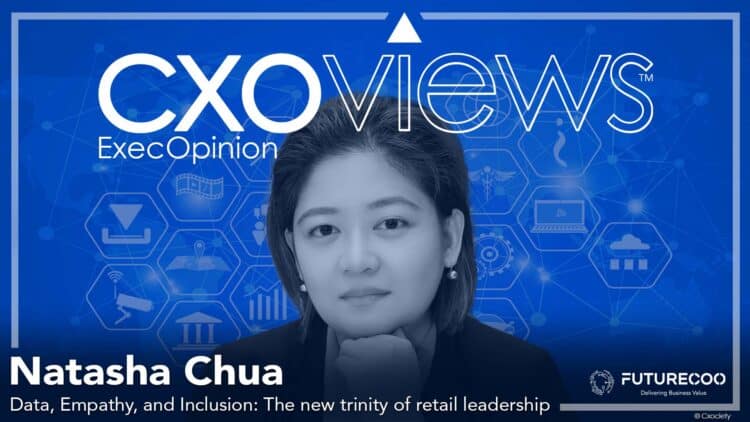In 2025, the retail landscape across the Philippines—and indeed much of Asia—is being reshaped by digital acceleration, evolving consumer values, and persistent macroeconomic volatility.
Amid these shifts, women leaders are playing an increasingly pivotal role, bringing nuanced perspectives that blend empathy with data-driven discipline. Yet, despite notable progress, gender equity in leadership remains uneven.
In the Philippines, where retail is both a cultural cornerstone and a significant economic engine, women continue to navigate a complex terrain of institutional bias, generational friction, and the ever-present expectation to "prove" their worth in ways seldom demanded of their male counterparts.
Women leaders in retail face intersecting challenges: from managing hybrid, multi-generational teams to building resilient supply chains amid geopolitical and climate-related disruptions.
At the same time, these very pressures are creating unprecedented opportunities—for those who can fuse strategic foresight with authentic leadership. Across Asia, women are leveraging inclusive workplace cultures, community-centric brand strategies, and cross-sectoral networks to redefine what retail excellence looks like.
Globally, the trend is clear: the future of retail belongs not just to those who move fastest, but to those who lead with both heart and analytical rigour.

It is within this dynamic context that Natasha Chua, general manager of Wizer Industries Inc. and known professionally as FutureCOO, stands out. Her leadership embodies a rare balance—grounded in financial acumen, yet deeply human; assertive in ambition, yet intentionally inclusive.
In an exclusive interview with FutureCOO, Chua shares insights drawn from years of navigating the unspoken rules of women's leadership in retail, offering a blueprint for resilience, connection, and purpose-driven growth.
As a senior leader, how do you cultivate a distinct leadership style that is both authentically mine and effectively drives performance in a hybrid, multi-generational workforce?
Natasha Chua: As a senior leader in a multi-generational workforce, I cultivate a distinct leadership style that is a healthy mix of both traditional structure and progressive flexibility. Being a millennial—kind of in the middle of Gen X, millennials, and Gen Z—provides an advantage, allowing me to bridge the "generational gaps".
Different members have different preferred communication styles. I curate communication based on individual needs. Some thrive with a gentle, supportive approach, while others are better reinforced by stricter, more direct coaching and feedback. By intentionally tailoring my interactions, I can effectively motivate people and drive business results.
I champion a 360-degree Workplace culture. This means suggestions and feedback are openly welcomed from every employee, regardless of their position or scope of work.
This practice gives employees an equal chance to be seen and heard outside their departments. This not only fuels individual and career growth but also significantly contributes to the organisation's improvement. This leadership style is not unique, but also very genuine and intentional.
What are the most effective frameworks for building personal resilience and strategic foresight in a world where the new norm is supply chain volatility and rapidly evolving consumer behaviour?
Natasha Chua: My strategy for navigating supply chain volatility and rapidly evolving consumer preferences focuses on building personal resilience through calculated risk and strategic foresight through data-backed planning.
During my early years in the competitive retail space, I pursued every business opportunity aggressively, often without adequately assessing the risks. Now, as a senior leader, I recognise that while I retain an aggressive appetite for growth, I have learned to take a step back and think things through before making high-stakes decisions.
I have learned that while passion and drive are essential, the most critical decisions are best made with a clear head. This disciplined shift allows me to make sound, strategic, high-quality judgments, which is key to avoiding self-inflicted stress and burnout.
I highly value research, believing data must back all business moves. This helps the organisation understand the industry's volatility, the rapid shifts in consumer values, and how best to serve them.
We proactively develop multiple, resilient strategies that perform well across divergent possible realities—whether those realities involve inflation, currency depreciation, economic instability, and political uncertainty.
In an era of market saturation, what strategies are most effective for building deep brand loyalty and community, turning customers into active brand advocates?
Natasha Chua: Because our business is centred on high-touch service, not just sales, maintaining exceptional quality and personal care is paramount.
While we equip our employees with comprehensive product knowledge, selling strategies, and technical skills, we place equal emphasis on training them in customer engagement, particularly in managing challenging or irate situations.
Though we retail globally established watch brands, our true brand equity resides in our people. We build loyalty on an emotional connection, recognising that deep brand loyalty goes beyond repeat purchases. Customers return not just for our products, but for the personalised care and expertise provided by our sales team.
We also offer complimentary services, such as free strap bracelet adjustments, even to customers who did not purchase the watch from us. This makes both actual and potential customers feel genuinely welcome as the relationship shifts from a transactional to a relational one.
Our commitment to not just creating an inclusive workplace but an inclusive community is demonstrated by proudly employing deaf staff. This approach to inclusion reinforces a powerful, shared identity that is worth more than any product features or competitor discounts. In a market where watch features are standard, the human element is our most substantial competitive advantage.
In 2025, do you think women are still expected to prove they are as good, if not better, than their male counterparts? For you, what qualities, experiences, and skills have proven most effective in landing you a successful career in retail?
Natasha Chua: The institutional bias not only discriminates against gender but also against race, educational attainment, and social class. This unequal treatment is not only present in the workplace but also in broader institutions such as healthcare, law enforcement, and the justice system.
I think accurate professional equity means that women do not need to prove their competence to men, as men are not expected to prove their worth to women.
Numeracy and financial acumen play a crucial role in business and individual success. This involves more than just culling data; it requires deep analysis and interpretation of economic implications.
While creativity and big ideas might drive initial growth, informed, high-quality decisions are impossible without a clear understanding of the numbers and ensuring every significant business decision is backed by data.
Apart from my technical skills, my greatest secret to success is my ability to build and maintain deep professional connections. I treat every person I meet—whether a new contact, a colleague, or a customer—as a "potential business partner", where I turn casual connections into a part of my growing professional ecosystem.
"I actively seek out networking opportunities to meet new people, learn about their backgrounds, and gain insights from outside the retail sector. Exposing myself to different industries deepens my understanding of complex business operations, sharpening my perspective and competitive edge." Natasha Chua
What is your view on mentorship – both as a mentor and a mentee?
Natasha Chua: As a mentor, I actively ensure my mentee and the rest of my team gain the full spectrum of skills and lessons I've acquired from my career, even those outside their current scope or expertise. I focus not just on the how, but fundamentally on the why.
I teach them to solve problems by allowing a safe space for mistakes. This is critical for developing ownership: they learn how to think strategically, take credit when successful, and take full accountability for challenges. This process empowers them to speak up and make recommendations for the entire organisation, even if a topic does not directly concern their department.
In line with my 360-Degree Workplace philosophy, I actively seek diverse perspectives from both my team and my wider professional network. I am well aware that employees often defer to my decisions because of my experience, so I frequently remind them that I don't always have the best answer and that I fully recognise their capacity to find it.
As a mentee, I maintain my growth trajectory by engaging in focused external learning. This includes attending conferences on topics outside my immediate expertise and participating in closed-group discussions to learn from other senior leaders' challenges and insights.
My overarching goal is to enable every team member to step up and believe in their potential for success. The main challenge I faced early on was struggling when individuals refused the career path I set for them. I realised success is different for everyone, and my role is not to impose my definition of success, but to help them define and achieve it on their own.
There is no shortage of successful women business leaders in the Philippines. Who do you draw your inspiration from and why?
Natasha Chua: The early experience of being doubted became my most excellent motivator. It taught me that competence must be proven with tangible, data-backed results, which is why my leadership philosophy is heavily anchored on data fluency and analysis.
This motivation also fuels my deep passion for sharing knowledge, which is why I proudly champion a 360-degree Workplace. A true leader strives not to leave anyone in doubt or overlooked, and I make an active effort to prevent others from experiencing the same professional doubt I overcame.
By modelling these actions, I prove to myself—and to the business—that success is earned, structured, and does not need external validation.
Any advice on the next generation of women leaders in retail?
My advice for the next generation of leaders is to understand that success is not linear, and that competence has nothing to do with gender, race, or class—but a powerful blend of data fluency, strategic connectivity, and structural equity.
The future of retail leadership
Chua's reflections offer a compelling portrait of modern women's leadership in the Philippine retail sector—one that is analytical yet empathetic, resilient yet relational. Her emphasis on data fluency, inclusive team dynamics, and purposeful mentorship reveals a leadership ethos that transcends traditional hierarchies.
In a time of uncertainty, she demonstrates that enduring success in retail is less about chasing trends and more about cultivating trust—internally among teams, and externally with communities.
Her journey underscores a vital truth: while institutional barriers persist, they are increasingly being dismantled by leaders who lead not to prove their worth, but to create value that is shared, sustainable, and human-centred.
For aspiring women in retail across Asia and beyond, Natasha Chua's story is both a roadmap and a rallying call—proof that competence, connection, and conviction can forge new paths in even the most saturated markets.



